Abstract
A model is presented that connects the underlying classical thermal transport coefficients to the experimentally determined vibrational temperature of a photoexcited chromophore embedded in a protein matrix that is surrounded by water. Both photo-stationary state heating (e.g., within a 10-ns laser pulse) and transient cooling (e.g., after termination of the laser pulse) are treated. Because only a few thermal transport parameters can be experimentally determined, this simple model provides a practical and efficient method for describing the temperatures of the chromophore, protein, and solvent as functions of time and position. We expect that such a model will be useful in interfacing experimental observations with more elaborate molecular dynamics calculations, which depend upon many variables. In the transient cooling process, which is relevant for ultrafast pulsed laser measurements, the temperature of the chromophore follows a double exponential decay at short times, whereas at longer times the thermal decay "rolls over" to a diffusion limit (t-3/2). For typical 10-ns laser pulses (approximately 0.5 GW/cm2) and chromophore absorption cross-sections (approximately 10(-16) cm2), we find that the biomolecule reaches thermal steady-state on a ps time scale. The role of the various thermal transport coefficients and their independent experimental determination is also discussed.
Full text
PDF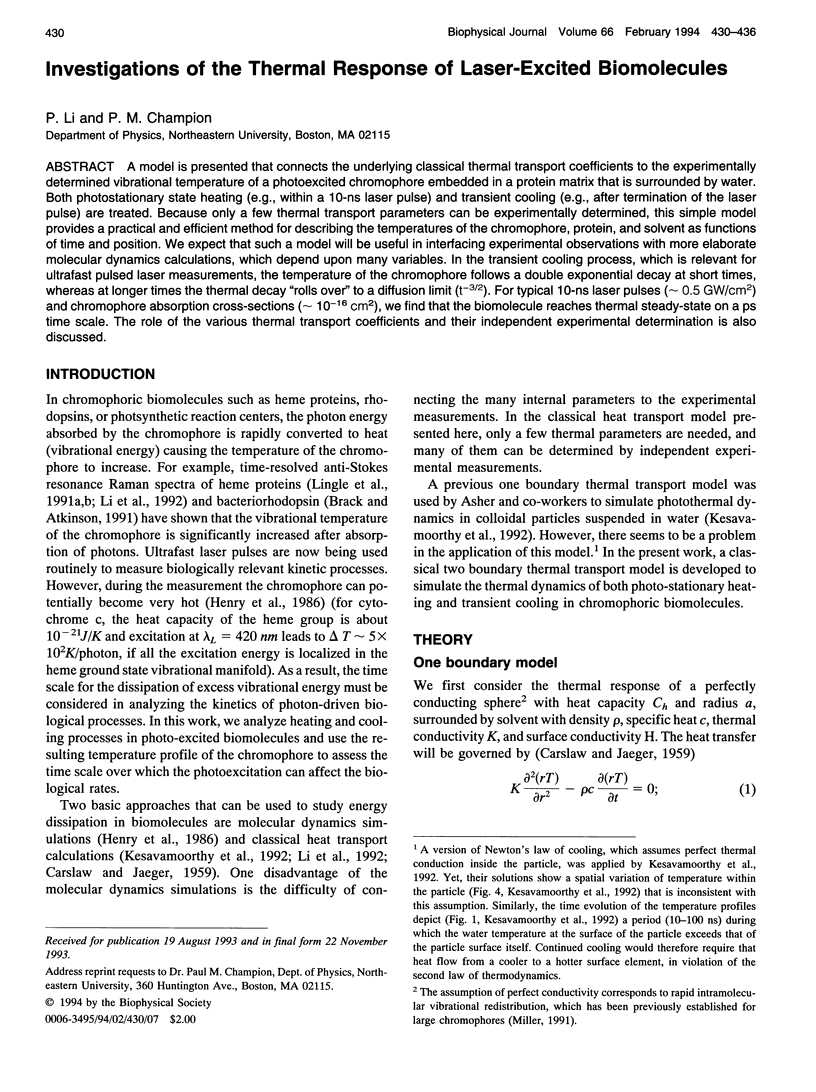
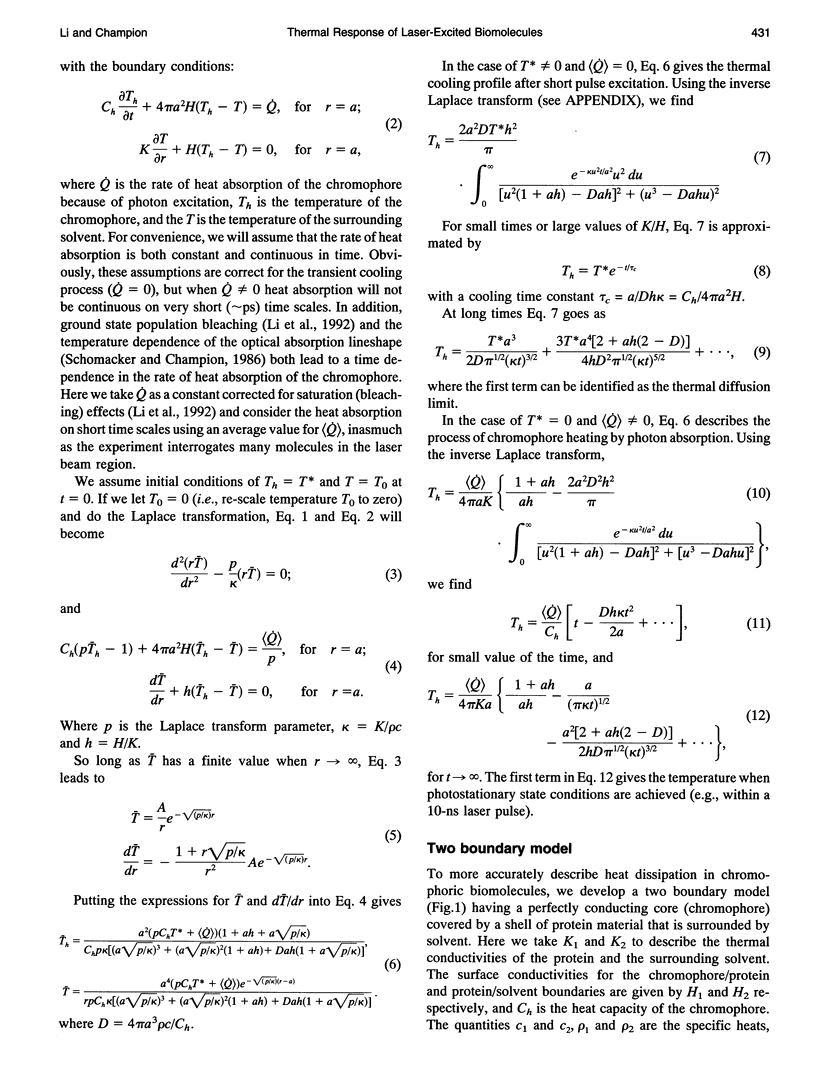
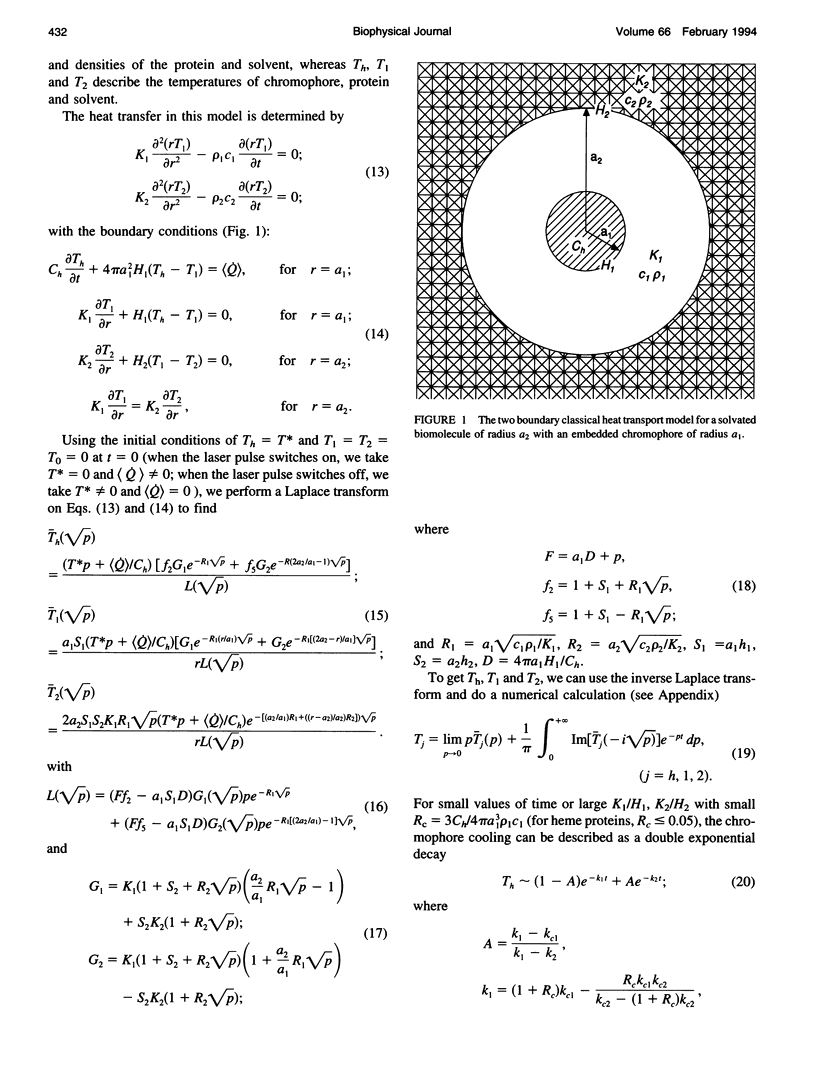
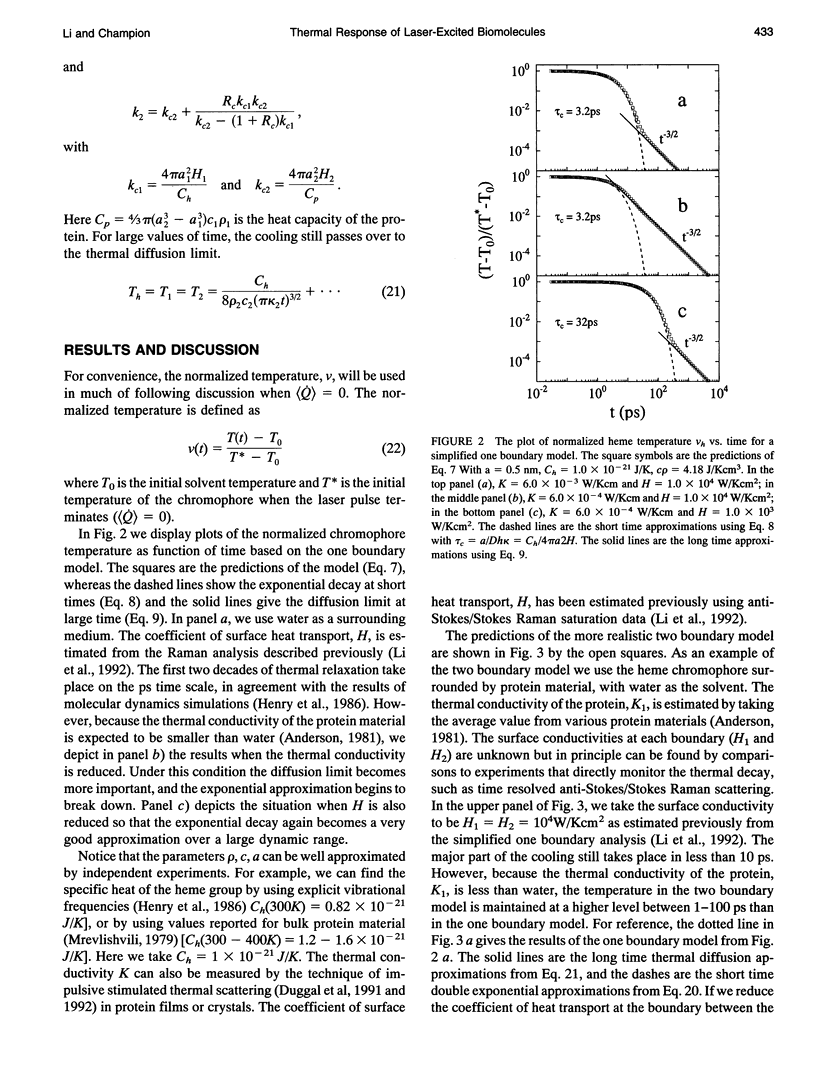
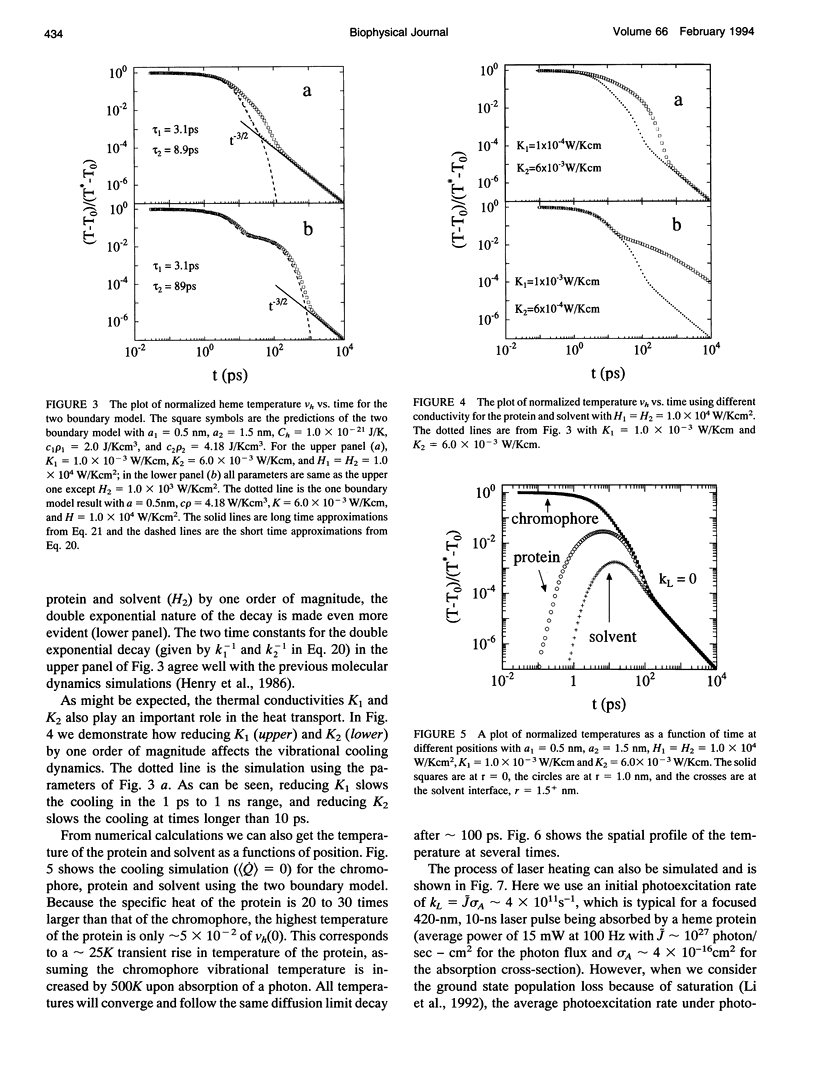
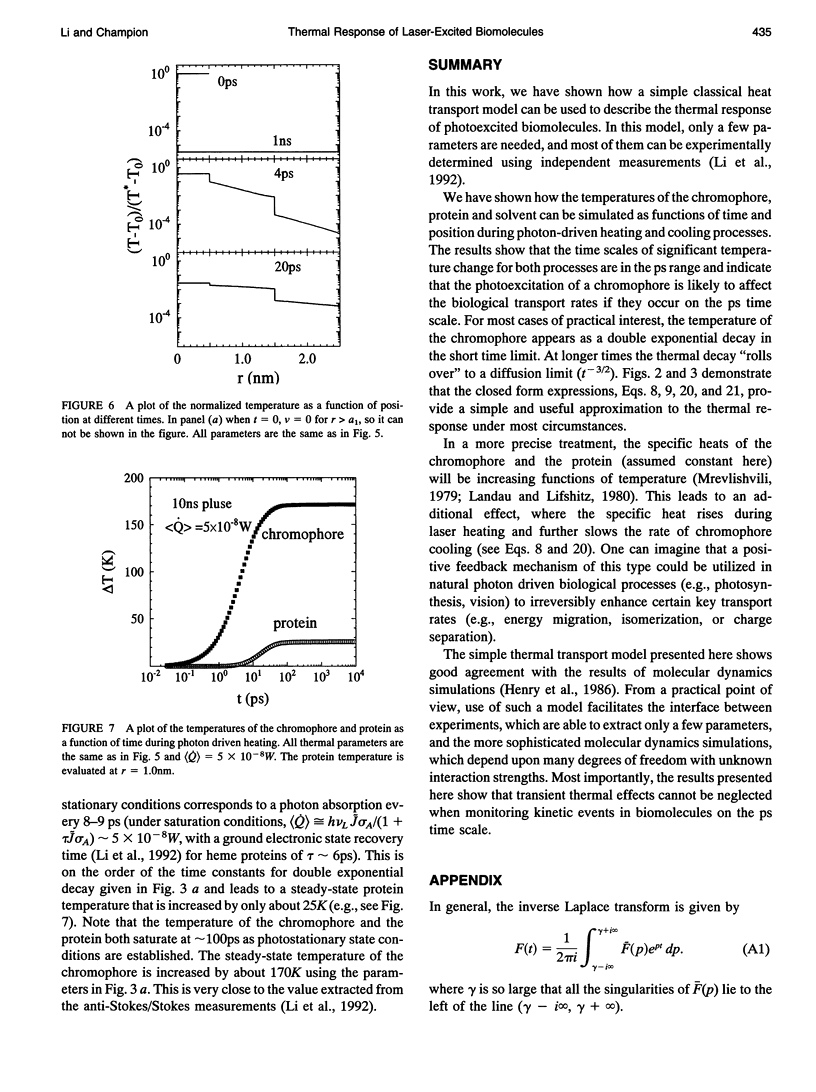
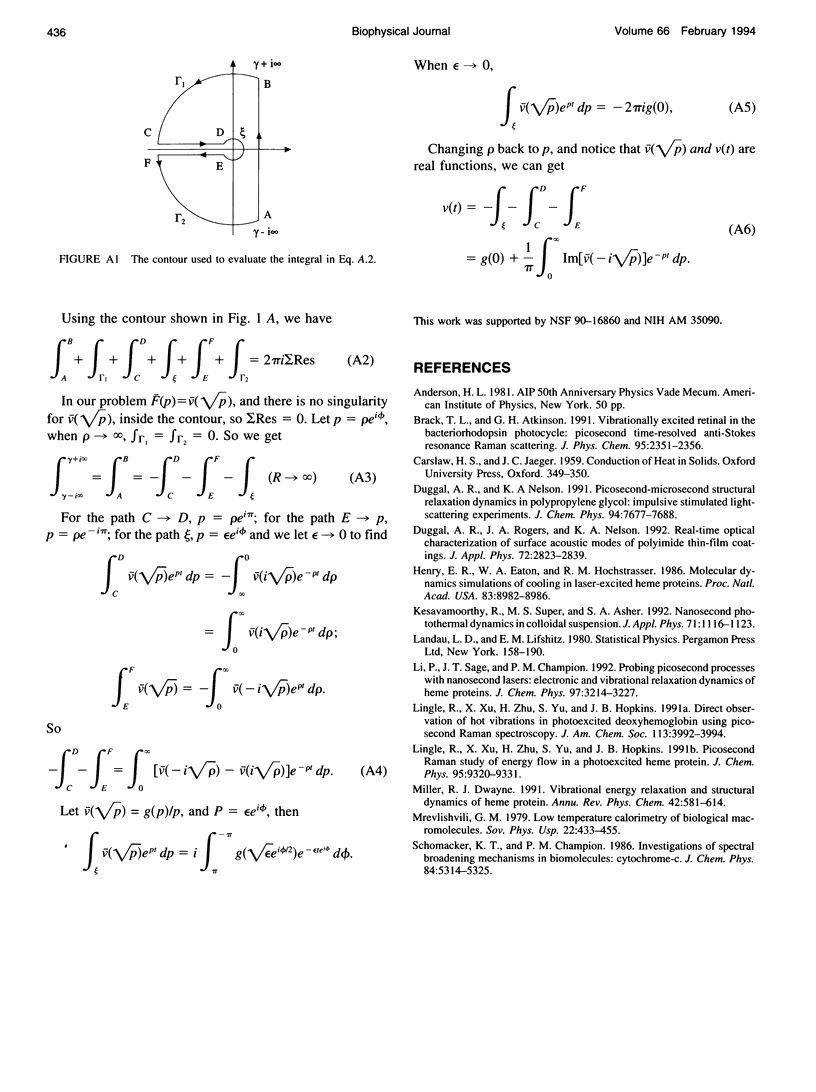
Selected References
These references are in PubMed. This may not be the complete list of references from this article.
- Henry E. R., Eaton W. A., Hochstrasser R. M. Molecular dynamics simulations of cooling in laser-excited heme proteins. Proc Natl Acad Sci U S A. 1986 Dec;83(23):8982–8986. doi: 10.1073/pnas.83.23.8982. [DOI] [PMC free article] [PubMed] [Google Scholar]
- Miller R. J. Vibrational energy relaxation and structural dynamics of heme proteins. Annu Rev Phys Chem. 1991;42:581–614. doi: 10.1146/annurev.pc.42.100191.003053. [DOI] [PubMed] [Google Scholar]


